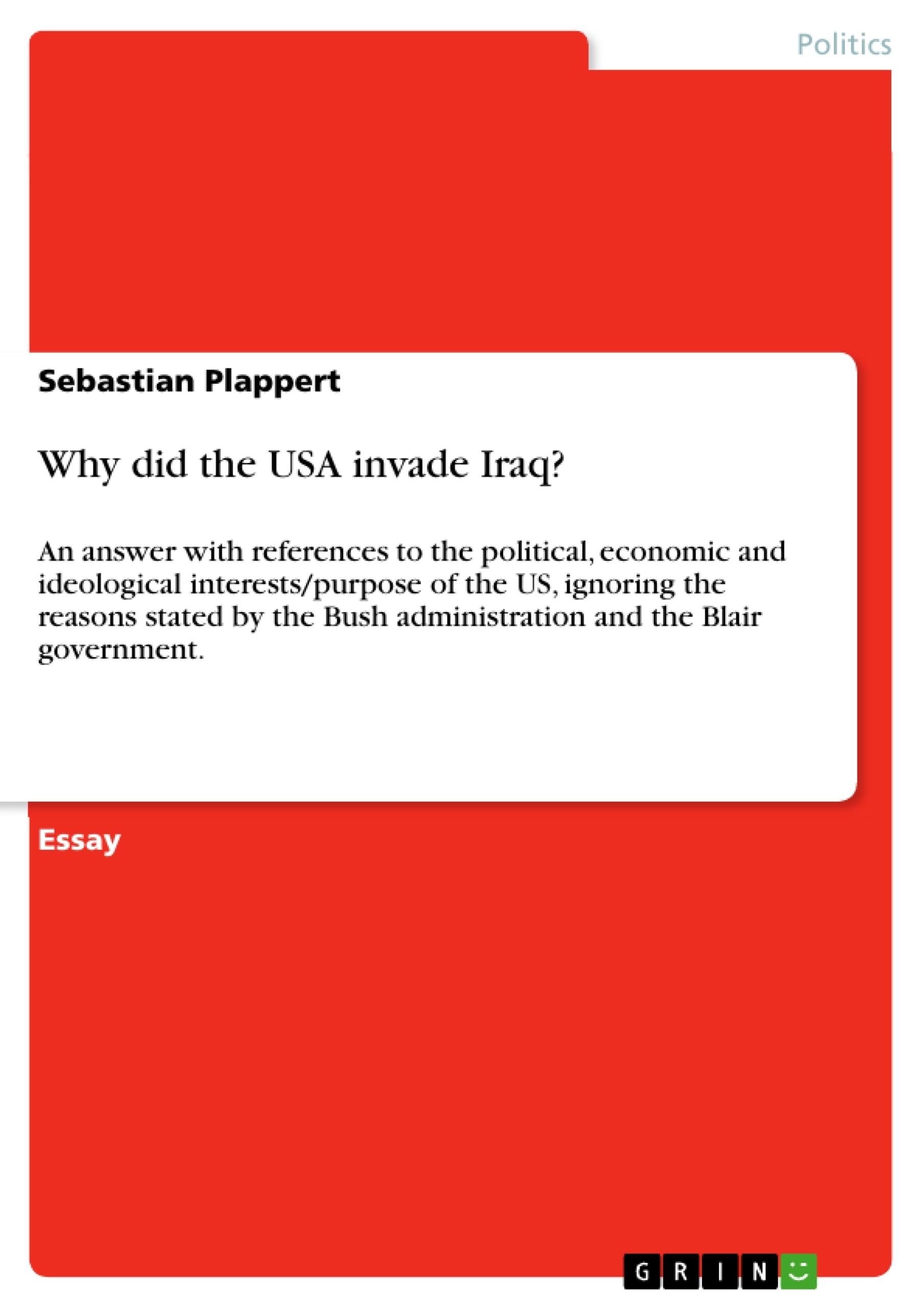This essay will argue that the 2003 invasion of Iraq was the result of a variety of intertwining motives, closely connected to the ideological position of key players in the Bush administration and their perception of America’s role in the international arena. After shortly reviewing the fundamental premises of this ‘neoconservative’ ideology and its proponents, the paper will focus on the spreading of democracy and on the notion of U.S. American hegemony. Subsequently, a closer look will be taken at the geostrategic importance of Iraq in regard to its oil reserves and its position in U.S. security planing, before considering economic issues. In doing so, the paper’s structure presents arguments processing gradually from theoretical to practical issues.
- Quote paper
- Sebastian Plappert (Author), 2008, Why did the USA invade Iraq?, Munich, GRIN Verlag, https://www.grin.com/document/154621



